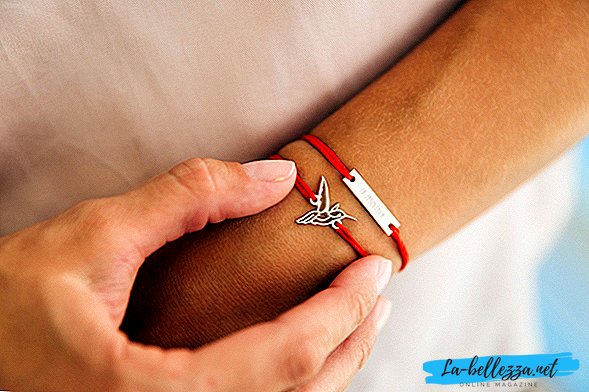
In child psychology, aggression is a child’s behavior that causes physical, psychological, or object harm to another person, object, or environment, even if the attempt to cause harm failed.
The expression of aggression can occur in various ways, including verbal abuse, personal property damage and physical contact. According to the findings, children with aggressive behavior tend to be irritable, impulsive and restless.
At the moment there is no single answer about the causes of aggressiveness in children. Many psychologists believe that behavior is an innate and instinctive problem. Others suggest that the loss of universally accepted values, a change in the principles of the traditional family, insufficient parenting and social remoteness lead to the expression of aggression in children, adolescents and adults. Aggression in children is correlated against the background of unemployment in the family, street unrest, crime, and psychiatric disorders.
Forms and goals of aggression in children
At the moment, experts distinguish between different forms, goals and types of aggression. Behavior can take various forms:
• physical;
• verbal;
• mental;
• emotional.
She can be provoked to achieve various goals:
• express anger or hostility;
• to assert superiority;
• to intimidate others;
• to achieve the goal;
• be the answer to fear;
• be a reaction to pain.
Modern psychologists distinguish 2 types of aggression in a child:
• Impulsive - affective, performed in the affect stage. Aggression is characterized by strong emotions, uncontrollable anger, hysterical state. This form of behavior is not planned, it occurs and occurs in the heat of the moment.
• Instrumental - predatory. Aggression is characterized by various manipulators that are aimed at achieving a more important goal. Instrumental aggression is often a planned action and exists as a means to an end. Causing inconvenience to another person, such as breaking a toy, the child moves to the goal - buying a new, more interesting toy for himself.
It was observed that children with lower levels of development are more prone to unplanned, impulsive aggression. Children demonstrating predatory aggression - know how to manage, plan and purposefully achieve their goal using aggression.
In psychology, there is a difference between the levels of aggression in boys and girls. Boys are almost always more aggressive than girls. Big children are more aggressive than small ones. Active and obsessive children are more aggressive than passive or very calm.
In children of all age groups, aggressive behavior is a powerful way to convey their desires to others, as well as the method to express their likes and dislikes.
Causes of aggression in children at different ages
• Infant age. Infants are aggressive when they are very hungry, are in an extremely uncomfortable position, have fear, indisposition, or pain. Parents can state that infant aggression can be judged by volume and tone of voice. But this opinion is wrong. Crying baby is a defense, it is a way of communication, the transfer of feelings and needs. It can not be called a manifestation of aggression.
• Baby age. Crumbs from 2 to 4 years old show outbursts of aggression by hysteria, causing pain to their peers, adults, damage to toys and furniture. Most often, aggression at this age is towards adults, as a way to achieve a goal. Speech aggression allows you to increase the child's vocabulary.
• Preschool age. Children from 4 to 6 years can be hostile to their brothers and sisters, as well as their peers. Due to the social interaction of children, imaginary and real resentments appear. They make the child stand up for himself and cause the attacking anger - aggression.
Aggressiveness in a child and predisposition to violence
If a preschooler behaves with hostility with familiar children, adults, and even animals, it is often hypersensitive, easily touchy, quickly enraged and cannot calm down for a long time, he may have a predisposition to violent behavior.
A preschooler has not yet learned to be responsible for behavior and, as a rule, blames others for their actions. Parents should pay close attention and take corrective measures.
Preschool children tend to have short periods of aggressive behavior, as they misunderstand that they are harmful, tired, or stressed. If the behavior continues for several weeks, parents should consult with their doctor and psychologist and eradicate the problem.
Factors that increase the risk of violent behavior
Parents and teachers should be extremely attentive if:
• the child has been the victim of physical and sexual abuse;
• there was domestic violence;
• if the child regularly sees violence on the TV screen, in the media, with neighbors living in the neighborhood;
• if parents use drugs and alcohol;
• if a firearm is present in the house;
• if the family is low-income, is experiencing a stressful period, is on the verge of breaking up a marriage;
• if parenting is a single mother, parents who have lost their jobs;
• if brain injury was present.
Parents can teach a child to be tolerant and manage their emotions. However, if the parents openly express their anger with the child, show coarse assertiveness and irritability, the child will follow the example of the parents and will not be responsible for their behavior. Responsible parenting does not tolerate any form of violence and prevents it in any way possible.
Stimulators of aggression in a child
Psychologists say that when children lose their dialogue with peers, they feel tense, scared and isolated. This is the case when aggression towards peers, even strangers, can inadvertently manifest itself. Parents should be attentive to the behavior of the child and in time to stop any attempts at aggressive behavior. When children overcome the feeling of isolation, they become friendly and do not show aggression.
Aggression can be a byproduct of poor parenting. If a child does not receive the necessary attention from parents, teachers and peers, as well as being abused, he becomes unruly and aggressive. If parents ignore the behavior or unknowingly consider it to be normal, this may further stimulate aggression.
In many children, aggressive behavior is a symptom of the manic stage of bipolar disorder. It can be manifested by irritability that has developed against the background of depression.
Sometimes children are aggressive towards their peers because of fear or suspicion. This disorder occurs when schizophrenia, paranoia, or other psychotic states are present.
Aggression can also be a by-product of inability to cope with emotions, especially disappointment. The disorder is found in autistic and mentally retarded children. Such children, if they are disappointed in something, cannot correct with emotions, effectively tell about the current situation, therefore, show aggression.
Children with ADHD syndrome or other destructive disorders can show aggressive behavior against the background of misunderstanding and impulsivity, especially when social principles are violated.
Aggressive child: what to do - advice from psychologists
Psychologists say: in order to eliminate aggressive behavior, it is necessary to determine the main cause and basic factors - stimulants of aggression.
Then teach parents effective ways to control the behavior of the child, without the slightest hint of aggression or punishment. It is important to have positive contact with the child, to encourage good behavior, and not to focus only on difficult moments of education.
The family must be created and respected special rules of behavior that are suitable for the age of the child, reasonable and meaningful inner circle. Parents should learn to be logical in behavior and decision making. Keep the ability to own emotions in any, even the most unexpected situations.
Studies have shown that physical punishment does not solve, but exacerbates the problem of aggressive behavior. If parents apply punishment in the family, the children:
• do not know how to control their behavior;
• feel a sense of fear and fear of disobeying their parents, but more often they are bullied;
• have an increased risk of getting mental disorders with adult health;
• become susceptible to violence, bullying the future spouse, their own children;
• lose the quality of relationships with parents.
Psychologists believe that the common problem of all parents is that children are fighting with sisters and brothers and are aggressive towards unfamiliar children. In childhood, children often have disagreements and conflicts. Children have different needs, desires and ways of doing things - this property makes them unique.
Parents should teach children to master social and emotional behavioral management skills. If a child loves wrestling and is very active, parents can invite him to take up martial arts, judo, any kind of wrestling. Sport will teach the little fidget the right methods of struggle, safe methods of self-defense.
At preschool age, children should be taught to find peaceful ways to prevent aggression. To help them correctly express their emotions, to understand the basic needs of other people, to understand and feel the situation and the present environment.











